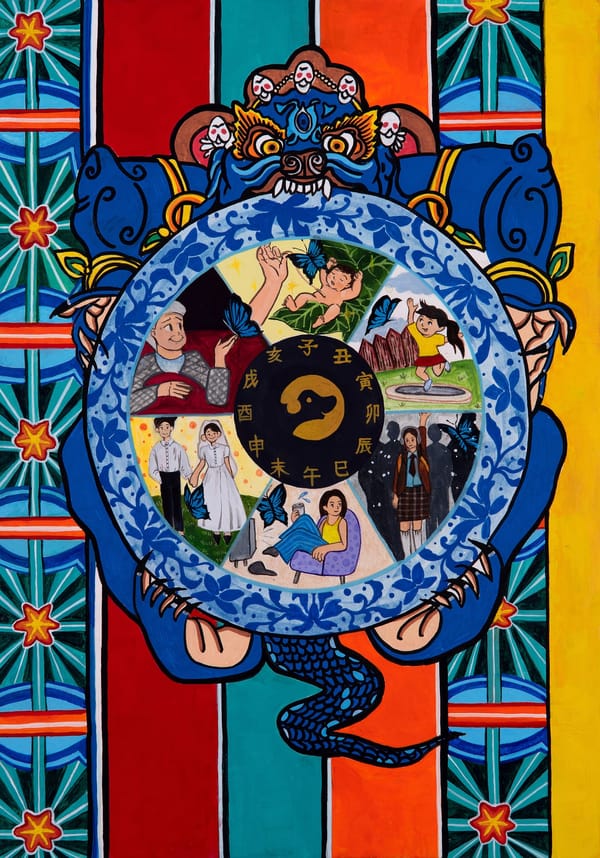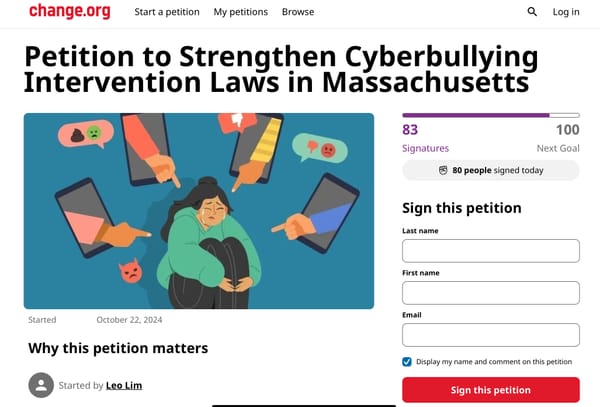On courage in To Kill A Mockingbird
By David Taehee Lee
What makes you pluck up your courage?
The answer to this question may vary from person to person, given that people have different experiences and values. To me, courage is determination in the face of an unusual, challenging obstacle. Reflecting on the novel, many things make us courageous. I would like to say three impressive things to me: curiosity, the will to live a human life, and defending justice.
- Curiosity
You may have experience imagining walking down a dark alley late at night. Although you feel uneasy and know it is no good, you pluck up your courage and keep glimpsing in curiosity. Courage translates your fear into action, an adventurous feat.
In To Kill a Mockingbird, Scout and Jem always get uneasy when passing by the Radley House. They wonder who the man in the house might be and are determined to make him come out. They give him the name Boo Radley. They decide to sneak up to the place and ring the front doorbell. Their curiosity stimulated them to do the thing they feared. Yet Scout and Jem are relentless in their efforts to learn more about Boo. Jem tries to lure Boo Radley with honey. Later, they even attempt to retrieve Jem's pants - something they would never have been able to do without their previous spurt of courage. Their interest in Boo Radley became bolder ever since they pressed the doorbell. The bigger the curiosity, the greater the courage.
From another perspective, I can get a glimpse of Boo Radley's courage. He wanted to know more about the children who passed by his house every day. He came up with the courage to put stuff in the tree for the children. This small change stimulated internal growth and ultimately led to Arthur Radley’s heroic rescue. This type of courage fulfills your desire to explore and makes you brave and motivated. It accumulates within you, pushing you forward. Only by overcoming your fears can you reach higher levels of confidence, and through courage, you grow more mature.
- The will to live a human life
I am confident that I can elaborate on this better than most people. This year, before coming to PRISMS, I had my annual health screenings and was shocked that I had varicose veins (a state where your veins are contorted and over-expanded). The doctor informed me that it was not a life-threatening condition at the moment, but it may get worse and block my veins. I had to decide whether or not to have surgery for the first time in my life. I had made my choice to get it done once and for all. I will never forget how nervous I felt when the hospital pastor held my hand and told me, “Our Father will be with you.” I got three wounds on my belly, but I am as healthy as ever before. It was not an easy decision to make for a 16-year- old boy who had never received any medical operations. However, the will to live a human life gave me the determination and courage to make the best choice.
At least I had my parents as a company. Mrs. Dubose fought her critical health problems with little help from those nearby. She fought against the urge to feel momentary relaxation. Mrs. Dubose pushed herself, although aware of the inevitable fate of her struggle. From my perspective, her hateful attitude is not her true personality, but it is an attempt to redirect her thoughts away from the ever-present temptation of the drug. When Atticus addressed her as the bravest woman he had ever seen, I agreed with him. She wished to be, quoting her own words, “beholden to nothing and nobody.” As I had concluded that the surgery was the best choice once and for all, Mrs. Dubose challenged herself to live a human life.
- Speaking up for what is right
It shines most brightly in a biased or corrupt environment. Maycomb is such a place. Atticus, the white lawyer, stands in defense of Tom, the innocent black victim. In Maycomb, a deeply racially biased community, this is viewed as a violation of the white code, but Atticus is determined. Even in the face of Cunningham’s mob, not to mention Bob Ewell’s intimidation, he does not yield. Atticus is unique and unmatched in demonstrating the ability to defend justice in Maycomb. In reality, every reader knows that Tom is innocent and Bob Ewell is deceiving the audience. However, I am sure that few would be able to replicate Atticus's courage in the court.
The most important thing is that Atticus already knew that he would ultimately fail in his defense for Tom (given the atmosphere of Maycomb). Atticus' attempt was not a failure. He even convinced one of the jurrors to acquit immediately. It was a brave, just, and courageous feat. People who speak up not only prove themselves to be courageous, but also inspire other people. Seeing others showing by example, the people who were too afraid to speak for themselves gather the courage to do so. In this perspective, I believe that it is a unique trait among the many indications of courage.
Tom Robinson and Arthur Radley have something in common: they both suffer from prejudice. Yet Tom ends up dying because of it, while Arthur at least has the chance to tell everyone that he is not the Boo Radley they think him to be. I believe that this was because of their different courage. In Maycomb, having a life of his own is not even feasible for Tom. He does not lack courage; he does not know that he could act bravely. He had such a hard life that he could not afford to give a human life a single thought. The innocent man’s attempt to escape was the greatest act of freedom from him. Arthur, however, was different. He managed to form a bond with Scout and Jem, and this gave him the courage to save them from Bob Ewell's attack. As you can see, how each person positions oneself influences their courage. Also, small pieces of courage affect one another to make a big difference.


